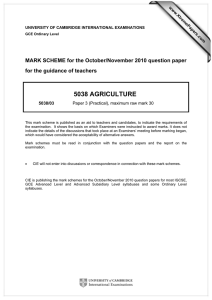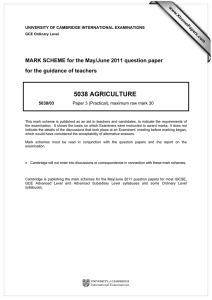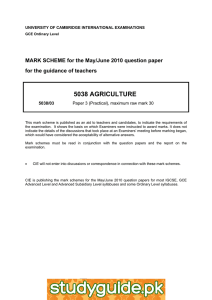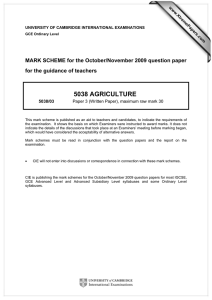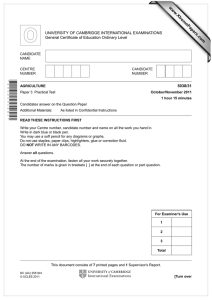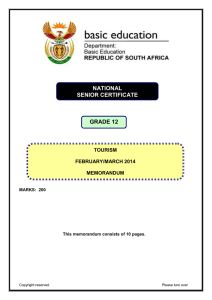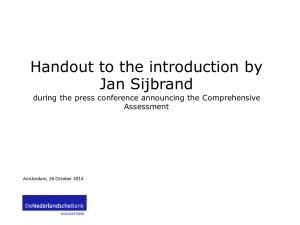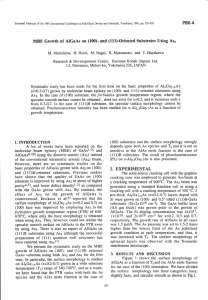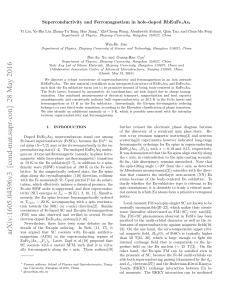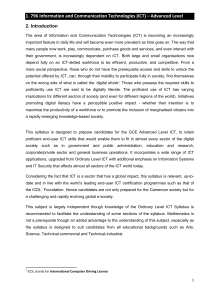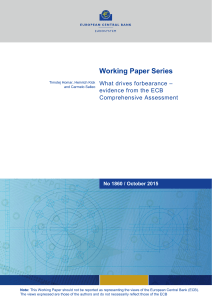5038 AGRICULTURE MARK SCHEME for the October/November 2011 question paper
advertisement
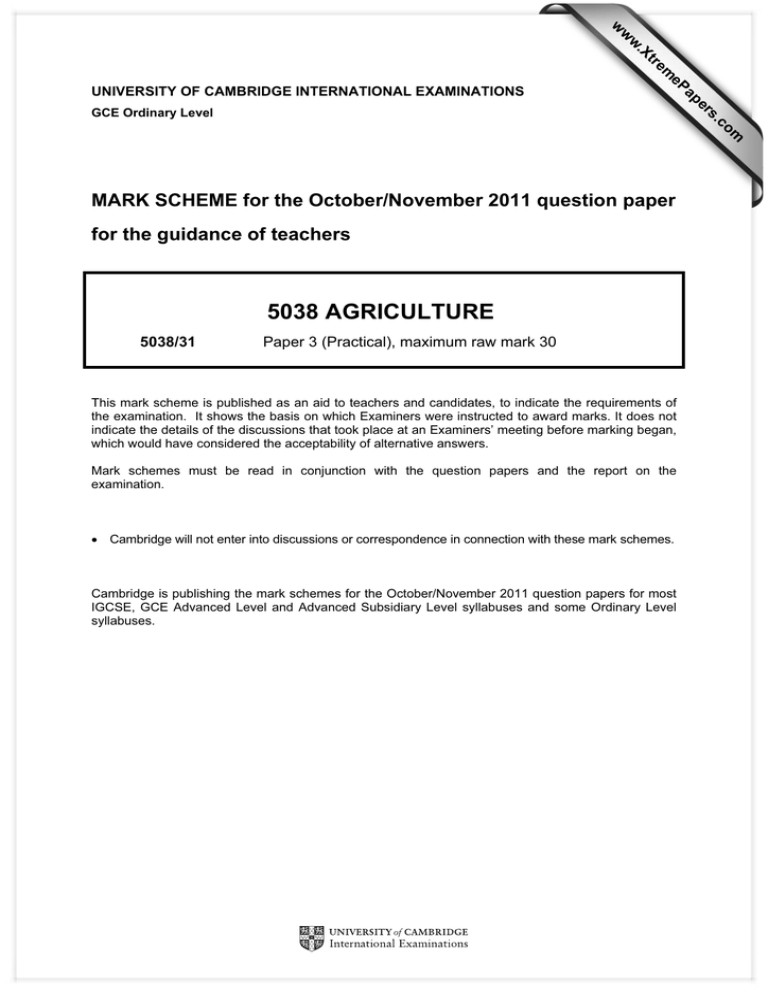
w w ap eP m e tr .X w UNIVERSITY OF CAMBRIDGE INTERNATIONAL EXAMINATIONS s er om .c GCE Ordinary Level MARK SCHEME for the October/November 2011 question paper for the guidance of teachers 5038 AGRICULTURE 5038/31 Paper 3 (Practical), maximum raw mark 30 This mark scheme is published as an aid to teachers and candidates, to indicate the requirements of the examination. It shows the basis on which Examiners were instructed to award marks. It does not indicate the details of the discussions that took place at an Examiners’ meeting before marking began, which would have considered the acceptability of alternative answers. Mark schemes must be read in conjunction with the question papers and the report on the examination. • Cambridge will not enter into discussions or correspondence in connection with these mark schemes. Cambridge is publishing the mark schemes for the October/November 2011 question papers for most IGCSE, GCE Advanced Level and Advanced Subsidiary Level syllabuses and some Ordinary Level syllabuses. Page 2 1 Mark Scheme: Teachers’ version GCE O LEVEL – October/November 2011 (a) (i) AS1 (ii) AS2 (b) (i) AS1 (ii) AS2 Syllabus 5038 Paper 31 Label for any two parts correctly labelled root hair and leaf. One mark for each (max 2) Quality of drawing (up to 2) [4] Label for root hair and leaf. (1) Rhizome labelled or any correct part (1) Quality of drawing (up to 2) [4] Hairy leaves waxy cuticle (1) Rosette leaves, low to ground. (1) Able to shoot / grow from rhizome if broken (1) Spreads underground (1) [4] [Total: 12] 2 (a) (i) AS3 AS4 (ii) AS3 AS4 (iii) AS3 AS4 (b) AS4 blue / no change no glucose brick red or glucose green yellow Both boxes complete for mark [2] blue black starch blue black starch Both boxes complete for mark [2] blue no protein purple protein Both boxes complete for mark [2] all nutrient present and protein for growth. [2] [Total: 8] 3 (a) AS5 AS6 18gms 10% 15gms 25% (Working not essential) (b) (i) neutral I not alter results (ii) blue/green 8.0 red 4.0 (c) add lime / chalk / any suitable method [4] [1] [4] [1] [Total: 10] © University of Cambridge International Examinations 2011
